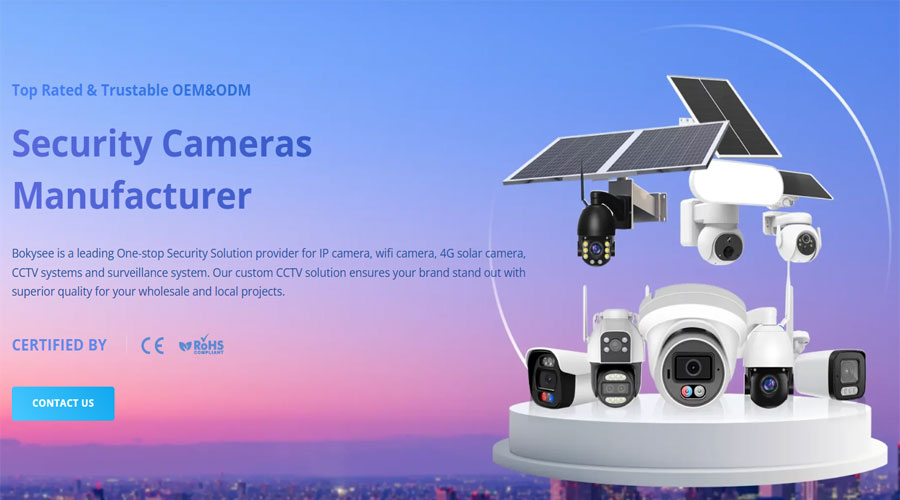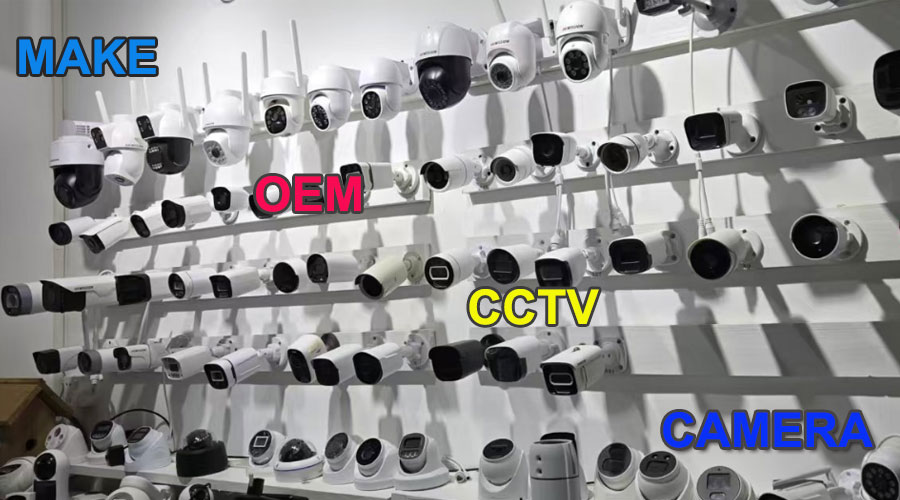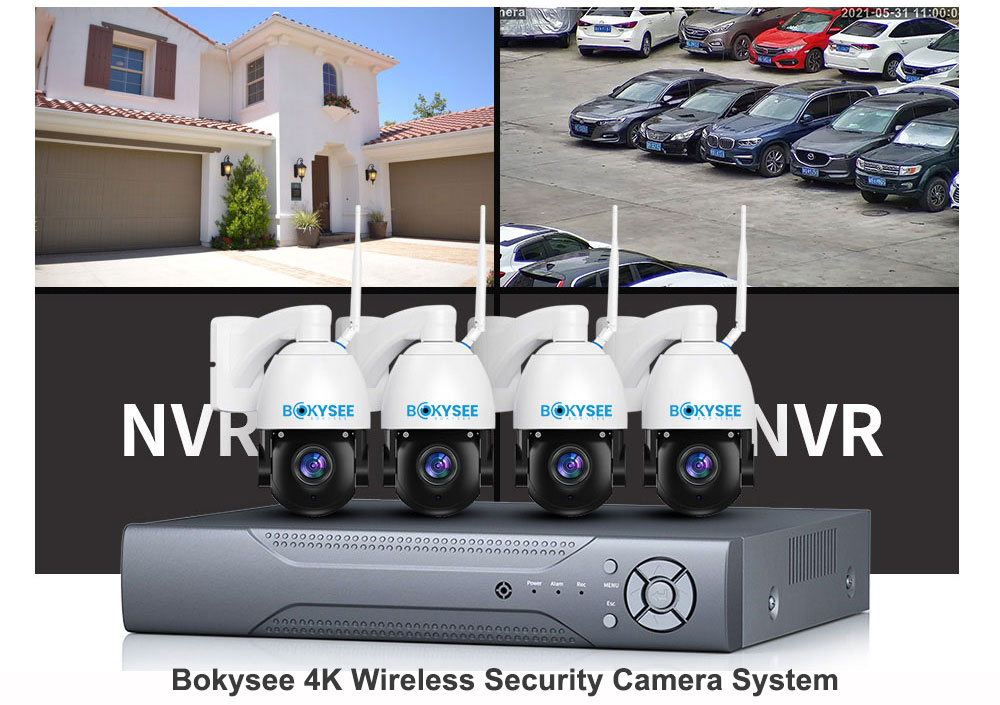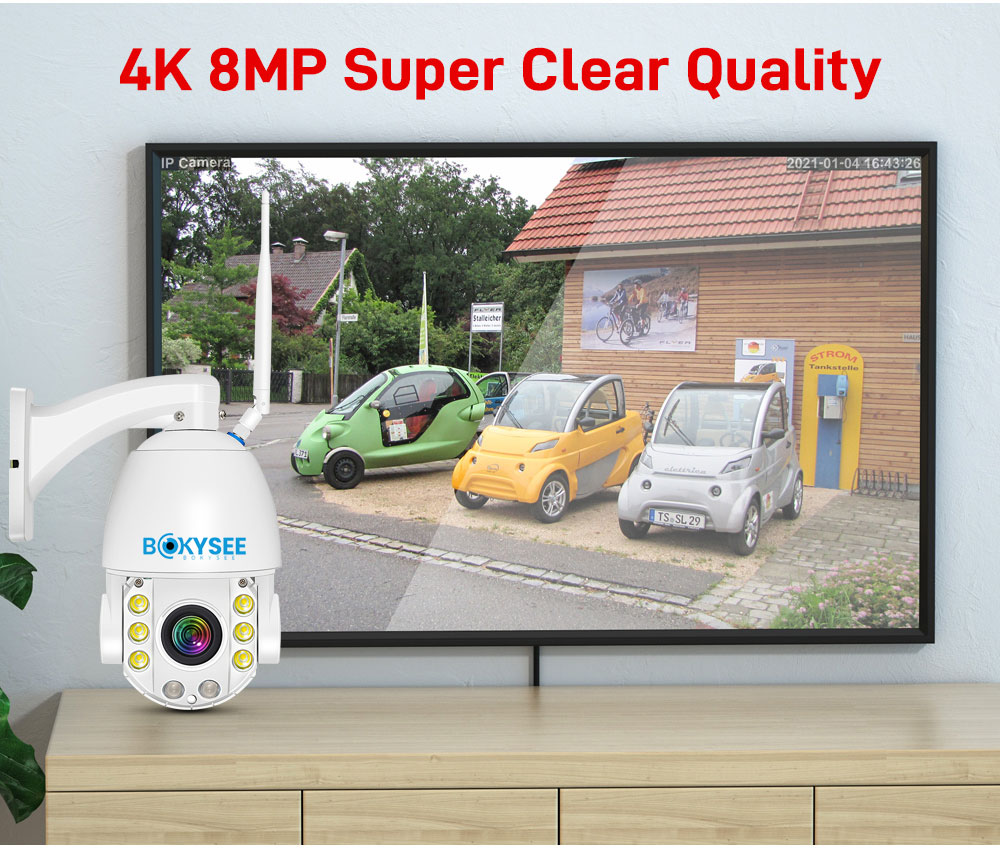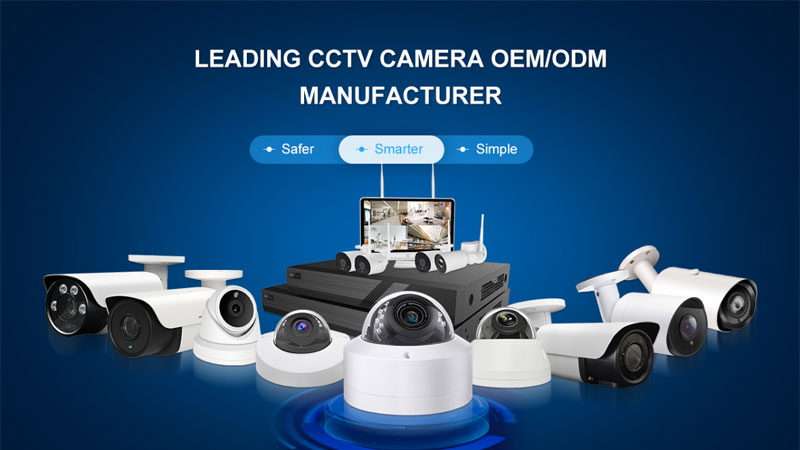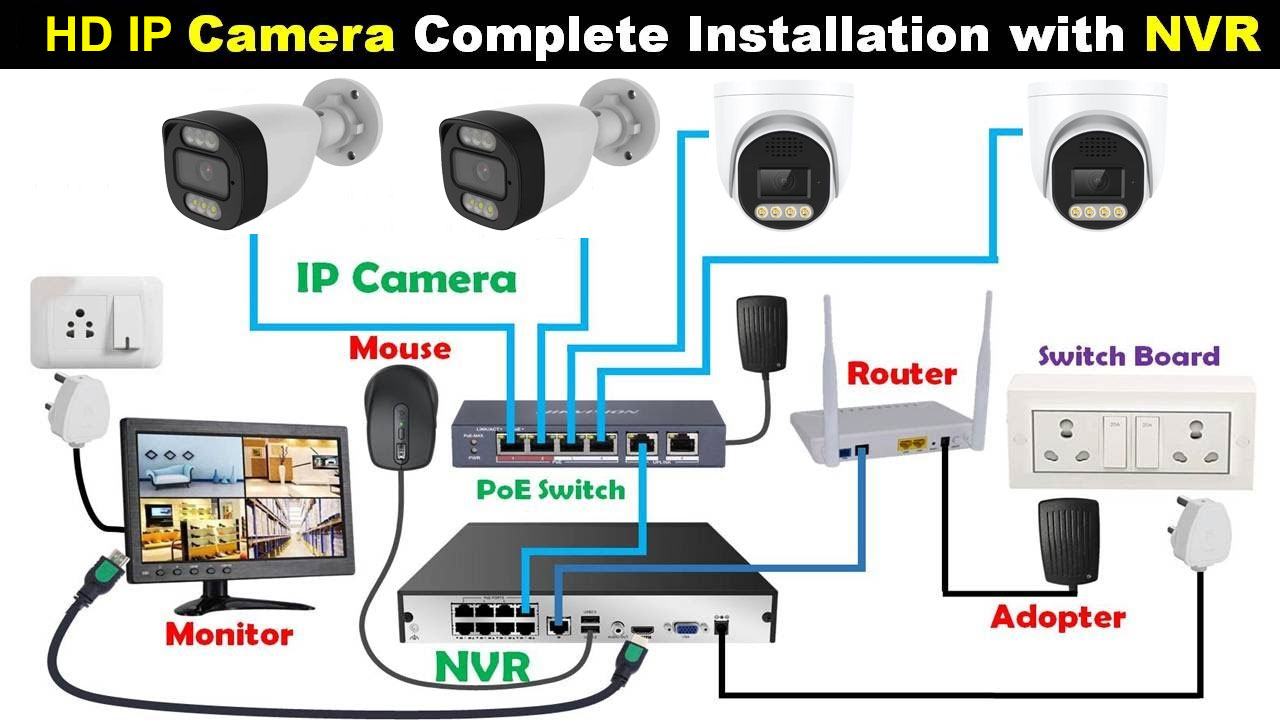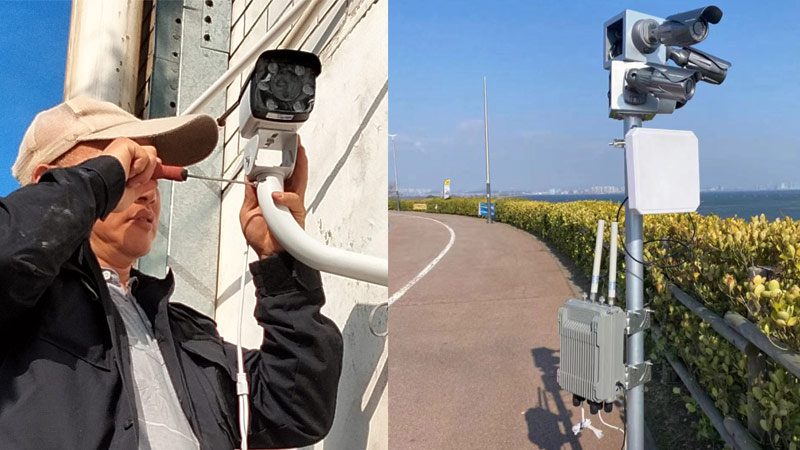
The CCTV Camera business is growing fast. In 2023, it was worth $17.07 billion. More people want security, especially in hospitals. CCTV helps keep places safe by watching and stopping bad things. Asia Pacific will lead with 49.9% of the market by 2036. This means good chances for new businesses. Entrepreneurs can join this growing field. Saving money and working better also help the industry grow.
Doing Market Research
Knowing the Need for CCTV Cameras
Finding Customers
Find who needs your CCTV cameras. Look at businesses, homes, and schools. Businesses want to protect things. Families need safety at home. Schools and hospitals use cameras for security. Know what each group wants to offer the right services.
Checking Competitors
Look at competitors to learn about the market. Companies like Hangzhou Hikvision Digital Technology Co., Ltd. and Zhejiang Dahua Technology Co., Ltd. are big players. They launch products and make partnerships. See their strengths and weaknesses. Find ways to grow by offering something special or better service.
Looking at Market Trends
New Technologies
Keep up with new tech in CCTV cameras. New tech makes cameras better with features like night vision and motion detection. Companies work on advanced technology to attract more buyers.
What Consumers Want
Know what customers like to meet their needs. People want easy systems that work well. Wireless cameras are popular because they’re convenient. Customers care about price and quality, so match your products to what they expect.
Gaining Important Skills and Knowledge
Skills for Setting Up CCTV Cameras
Putting in and Taking Care of Cameras
Learn how to put CCTV cameras in places like homes and shops. Know how to place cameras to see important spots. Make sure each camera works well. Regular check-ups keep systems working fine. Check wires and clean lenses to avoid problems.
Fixing Usual Problems
Learn how to fix common CCTV issues. Find problems like blurry pictures or broken connections. Use tools to test and fix things. Keep extra parts ready for quick repairs. Good fixing skills make customers happy.
Running a Business Well
Handling Money
Manage money so the business makes money. Watch income and spending closely. Make plans to control costs. Know profits to set good prices. Smart money handling helps the business grow.
Helping Customers
Give great service to earn trust. Talk clearly with clients about what they need. Give solutions that meet their wishes. Handle complaints nicely to keep a good name. Good service brings back customers.
Legal and Regulatory Compliance
Business Registration and Licensing
Choosing a Business Structure
Pick the right business type for you. You can choose sole owner, partnership, or company. Each has different taxes and protections. Talk to a lawyer to decide.
Obtaining Necessary Permits
Get the permits you need for your CCTV business. Check what local rules say about licenses. Some places need special security permits. Follow rules to avoid trouble.
Understanding Privacy Laws
Compliance with Local Regulations
Follow local rules for using CCTV cameras. Put up signs to tell people they’re being recorded. Only film your own property. Don’t invade others' privacy. Follow data laws like GDPR.
Ethical Considerations
Think about privacy when installing cameras. Respect people's rights to privacy. Check impacts before putting cameras at work. Share videos with police only if required by law. Be open to build trust with clients.
Picking Products and Suppliers
Choosing CCTV Cameras
Camera Types
Pick the right CCTV Camera for each need. Bullet cameras are good outside. Dome cameras are for inside. PTZ cameras can move around. Wireless cameras don’t need wires. Each type has a special use.
Important Features
Find key features in a CCTV Camera. High resolution gives clear pictures. Night vision helps see in the dark. Motion detection tells when something moves. Weatherproofing keeps outdoor cameras safe. Remote access lets you watch from anywhere.
Working with Suppliers
Checking Supplier Trust
Pick suppliers you can trust for good products. Look at their history and reputation. Check if they deliver on time. Read what customers say about them. Good suppliers keep your business running smoothly.
Talking About Prices
Talk about prices with suppliers. Ask for discounts on big orders. Agree on payment plans that work for both sides. Make sure delivery times are clear. Good talks mean better deals and savings.
Showing Bokysee Products
Special Features
Bokysee Products have special things to offer. Strong materials make them last long. New technology makes them work well. Easy designs help with setup. Good prices bring more buyers.
Connecting with Systems
Bokysee Products fit well with other systems. They work with smart home gadgets, adding value. Easy links to security networks make things better and safer.
Creating a Marketing Plan
Going Online
Making a Website
Make a nice website for your CCTV business. Use important words to help people find it online. Share details about what you sell and do. Add clear pictures and videos to catch eyes. Write a blog with safety tips and news to interest visitors. Update often so people stay informed.
Using Social Media
Talk to customers on social media sites like Facebook, Twitter, and Instagram. Share news about new products and sales. Use fun pictures and hashtags to get noticed. Answer comments quickly to make friends. Link back to your website and blog for more visits.
Offline Ways to Market
Meeting Local Businesses
Meet local businesses to find new customers. Go to events in the community and talk about your CCTV services. Give special offers or discounts to nearby businesses. Work with other security companies for shared benefits. Build strong bonds for referrals.
Joining Trade Shows
Join trade shows to show off your products. Set up an eye-catching booth with cool displays. Show how your CCTV cameras work well. Hand out flyers and cards to people there. Talk with visitors and answer their questions happily. Collect contact info for later chats. Trade shows help meet industry experts and new clients.
Setting Up Operations
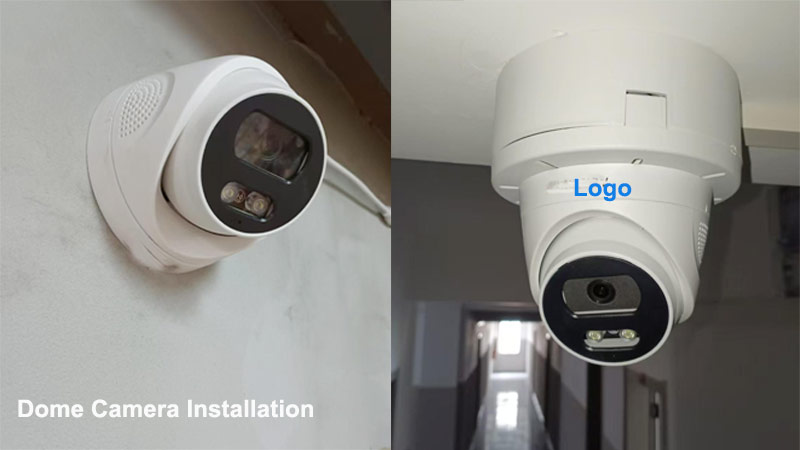
Establishing a Physical Location
Choosing a Suitable Location
Pick a spot where people come often. Look near busy areas or homes. Make sure it's easy for customers to visit. A good location helps your business grow.
Setting Up an Office and Showroom
Make your office welcoming. Show CCTV products clearly. Use signs to help visitors find things. Set up demo spots for trying out products. Have comfy seats for talks. A tidy space makes customers happy.
Hiring and Training Staff
Recruiting Skilled Technicians
Hire technicians with good skills in CCTV work. Check their experience in setting up cameras. Interview them to see how they solve problems. Pay well to get the best workers. Good technicians make customers pleased.
Providing Ongoing Training
Plan regular training times. Teach staff about new tech updates. Use workshops to boost skills. Encourage online learning too. Regular training keeps your team smart and ready.
CCTV business owners know skilled staff are key. "Training brings better service," says one owner. Success stories show trained teams build trust and help businesses grow.
To start a CCTV business, follow important steps. First, research the market to know what customers want and who your competitors are. Learn how to install cameras and manage the business well. Make sure you follow all legal rules. Pick good products and suppliers you can trust. Create smart marketing plans to attract buyers. Hire skilled workers for smooth operations. Stories show CCTV systems help catch thieves and stop crimes, proving their value. Security needs are rising, making this a great chance. Act now to join this booming market. The chance for success in the CCTV industry is big.
See Also
Tips for Selecting the Perfect CCTV Maker for Home Safety
Ultimate 2024 CCTV Camera Installation Guide: Tips and Placements
Boost UAE Office Security with Prime CCTV Camera Choices

